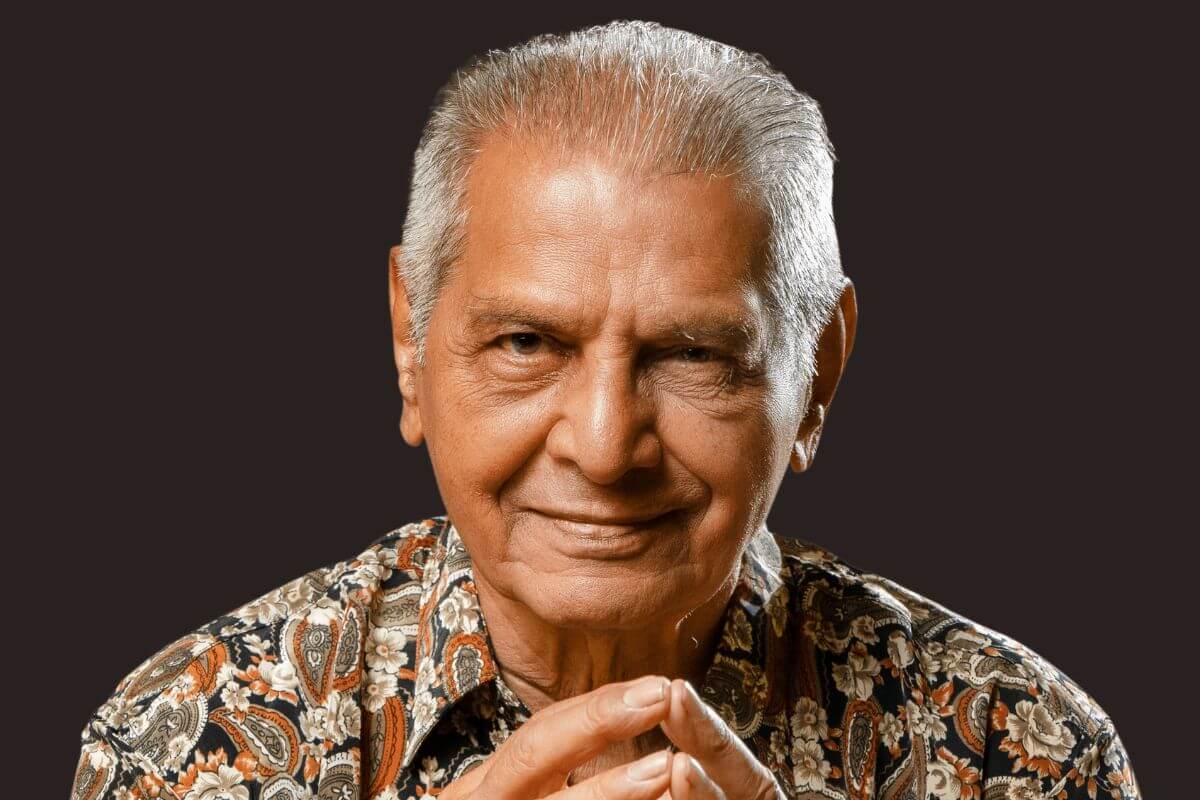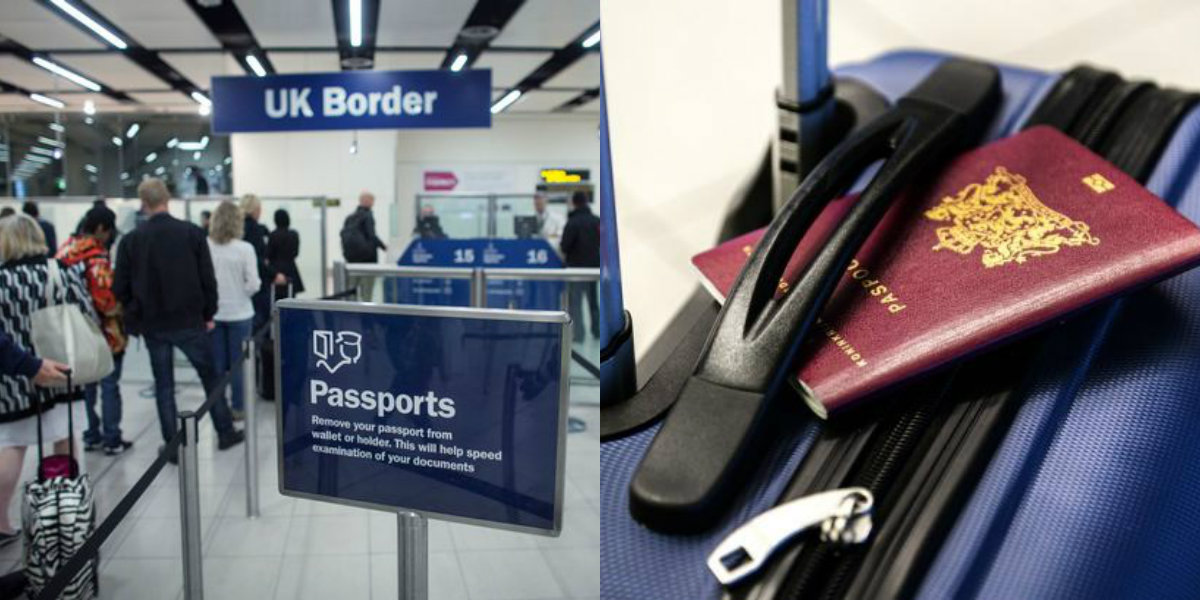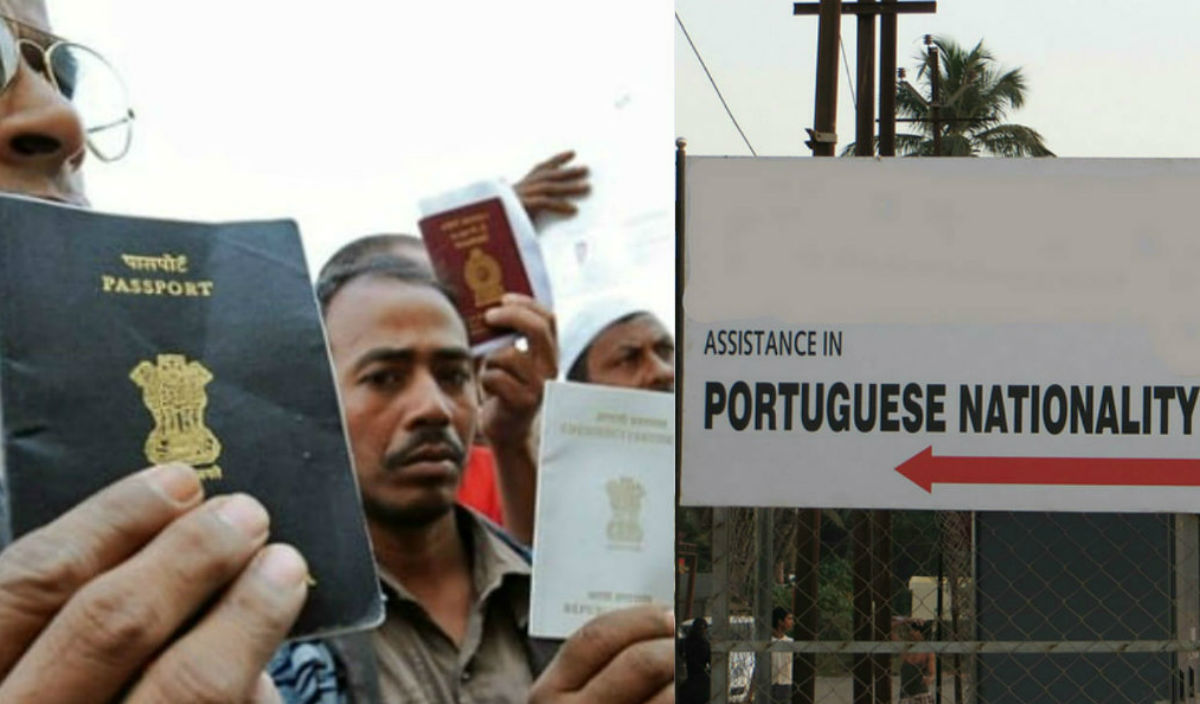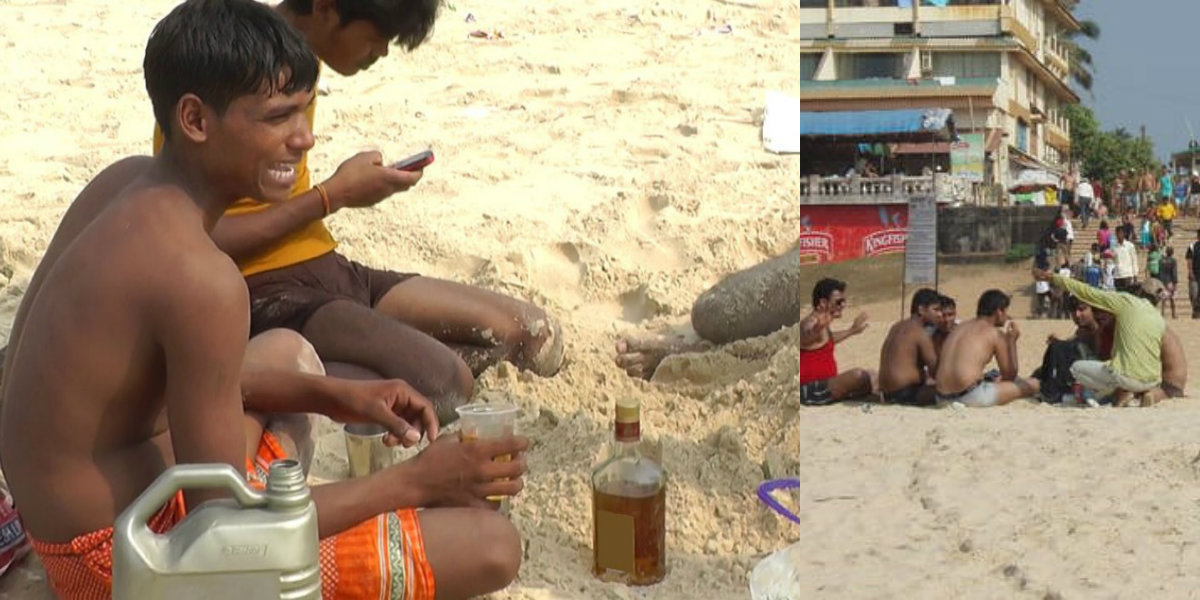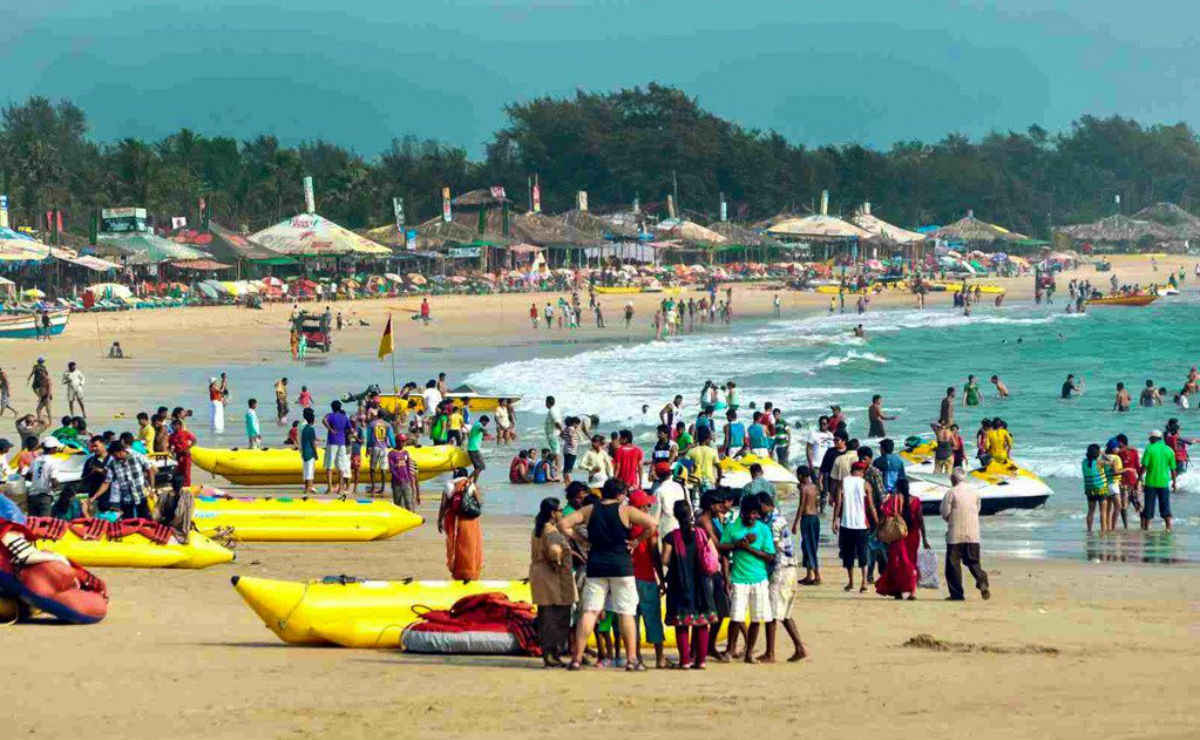Madhukar Zende may not boast the same notoriety as the infamous “Bikini Killer,” Charles Sobhraj, but his tale is one of unparalleled dedication and contribution to justice. Our paths crossed at the very site where Zende apprehended Sobhraj four decades ago in Goa, unveiling a narrative rich in intrigue and the unwavering pursuit of justice.
Zende’s journey in the Indian Police Force commenced in the year 1959 and post-training he was posted to Mumbai Police as PSI (Police Sub Inspector) laying the foundation for an illustrious career. Through relentless determination and tireless diligence, he ascended the ranks to become Assistant Commissioner of Police in Mumbai. However, this ascent was far from smooth; it was a testament to Zende’s resilience in navigating a landscape fraught with peril and adversity. Along the way, he faced formidable adversaries such as the notorious Dons of Mumbai, Haji Mastan, and Karim Lala, ensuring their apprehension and restoring order to the city’s streets.
Zende’s imposing stature and commanding presence instilled a sense of apprehension in those who dared challenge the law. These attributes were instrumental in his relentless pursuit of Charles Sobhraj, marked by daring exploits and unwavering resolve.
Join us as we uncover the untold chapters of Madhukar Zende’s remarkable journey—a testament to the indomitable spirit and unwavering commitment to justice that define a true exemplar of law enforcement excellence.
Madhukar Zende’s connection to Goa was solidified on the day he apprehended the notorious Bikini Killer, Charles Sobhraj, at the renowned restaurant “O Quoquiro” nestled in Porvorim, North Goa. Reflecting on this pivotal moment, Zende reminisced about his earlier encounter with Sobhraj back in 1971, in the bustling Fort area of South Mumbai. It was there that Sobhraj’s grand scheme of a major robbery was thwarted, laying the groundwork for his eventual capture.
“The arrest of Charles Sobhraj in 1971 is the culmination of another tale,” Zende recounted. According to him, the arrest stemmed from the apprehension of a minor offender named “Ajay Modi, a petty criminal, committed theft within his own home, prompting his mother to seek justice,” Zende elaborated. “While we initially extended leniency and granted him a second chance under the provision of the law, allowing him to reform, his criminal tendencies persisted, leading to continued petty theft.”
Zende elucidated, “The intriguing twist unfolds when freeing Ajay was an act of compassion, aimed at offering him redemption. However, his persistent criminal activities inadvertently aided in the capture of one of India’s most sought-after criminals.” He continued, “One fateful day, as Ajay roamed the Chowpaty Area, he encountered a group of foreigners, seizing the opportunity to solicit illicit work for monetary gain. Unbeknownst to Ajay, among this group lurked Charles Sobhraj, a fugitive sought in multiple countries, with India serving as a new frontier for his criminal exploits.”
Zende revealed, “It later came to light that Sobhraj had nefarious intentions, including a planned dacoity at the Air India office in South Mumbai. However, his rendezvous with Ajay unwittingly led him into my trap, as he unknowingly became the conduit for Sobhraj’s downfall.”
By the time Sobhraj crossed paths with Ajay, his plans for the Air India office dacoity had reached an advanced stage. Seeing potential in Ajay, Sobhraj invited him to join his gang, whisking him away to Delhi. However, upon arriving in the capital, Ajay was jolted by the realization that he had become entangled with individuals wielding guns, pistols, and grenades—a stark departure from his previous criminal endeavors. Overwhelmed by fear, Ajay made a daring escape, absconding with two Revolvers. Selling one for a substantial sum of five thousand rupees, Ajay embarked on a new venture—a modest cigarette shop—a testament to the considerable value of his earnings during that era.
Madhukar Zende interjected, highlighting the pivotal twist in the narrative: “The tale took an unexpected turn when Ajay attempted to sell the second revolver to a local businessman in Mumbai. In a tragic turn of events, while demonstrating the weapon’s functionality, Ajay inadvertently discharged a bullet into the chest of the businessman, who collapsed upon impact. Believing the man to be dead, Ajay sought my mercy, unraveling the entirety of the story in his plea for clemency.”
Now fully cognizant of Sobhraj’s nefarious plans, I meticulously strategized, awaiting the opportune moment to apprehend him upon his arrival in Mumbai to execute the dacoity. Unbeknownst to me, the groundwork for his arrest had already been laid by the petty criminal Ajay,” recounted Madhukar, emphasizing that at that juncture, his sole lead was Sobhraj’s gang’s penchant for lodging at the Taj Hotel while in Mumbai.
“I meticulously surveilled the movements at the Taj, and on the auspicious day of November 11, 1971, my vigilance bore fruit. As a man in a suit descended from the premises, Ajay swiftly identified him. Without hesitation, I moved in, apprehending Sobhraj. Despite his expertise in Karate, I ensured he was immobilized, swiftly disarming him of the revolver in his possession,” Zende recalled, acknowledging the inherent risk in confronting a seasoned combatant.
“Upon bringing him to the police station, Sobhraj maintained a stoic silence, refusing to divulge his identity. Undeterred, we conducted a thorough search, unearthing four hotel receipts belonging to his accomplices. Waste no time, we swiftly raided these locations, culminating in the arrest of all four associates, alongside a significant cache of arms and ammunition,” Zende recounted, signaling the culmination of Sobhraj’s criminal endeavors.
Despite Madhukar Zende’s successful apprehension of Sobhraj, his tenure in custody was short-lived, as the Delhi Police sought him for another crime perpetrated in the capital,” revealed Madhukar. “Charles Sobhraj wasn’t just a seasoned criminal; he was also a masterful actor, adept at seizing opportunities wherever he ventured. During his stay at the Ashoka Hotel in Delhi, he befriended himself with a cabaret dancer, assuming the guise of a jeweler. Exploiting her trust, he orchestrated a daring dacoity before vanishing into the night. The sensational crime made headlines across major media outlets, given its occurrence within one of the capital’s most prestigious hotels.”
Despite the Delhi Police securing his custody and confining him behind bars, Sobhraj’s incarceration proved fleeting. Seizing upon the chaos of the India-Bangladesh War blackout, he orchestrated a daring escape from police custody,” Zende disclosed, underscoring Sobhraj’s knack for eluding confinement.
“Furthermore, continued Madhukar, divulging a crucial aspect of Charles Sobhraj’s modus operandi, “following his escape from the Delhi jail, Sobhraj expanded his criminal repertoire. Learning to adulterate drugs into coffee or liquor, he ensnared unsuspecting young women, drugging and ultimately murdering them before absconding with their valuables. In some instances, he resorted to heinous acts such as dousing his victims in petrol and setting them ablaze before plundering their residences. These atrocities spanned across major countries like France, Russia, and Iran, earning him the moniker of the Bikini Killer.
“Despite Charles Sobhraj’s successful escapes from Indian law enforcement, fate seemed to tether him to the subcontinent, drawing him back to commit further crimes, particularly in Mumbai,” recounted Madhukar. “In 1975, a French couple was discovered unconscious in the opulent confines of the Taj Mumbai. Upon their recovery, they shared a harrowing account, offering a telltale sign of Sobhraj’s return to India.”
“It didn’t take long for my suspicions to be confirmed,” continued Madhukar. “Within two months, reports surfaced of Sobhraj’s presence at the Taj Mumbai with a Canadian companion. The hotel’s vigilant security personnel promptly alerted me, leading to the retrieval of Sobhraj’s luggage containing incriminating evidence, including counterfeit passports and weaponry.”
“While Sobhraj managed to evade capture in Mumbai, he didn’t flee India entirely. Soon after, I received word of his arrest in Delhi in 1975, following an incident where he drugged a group of students,” Zende recounted. “Called upon to testify against him, I was taken aback to see Sobhraj escorted by a phalanx of police officers, despite my having apprehended him single-handedly in 1971. It seemed that media attention had elevated him to the status of a celebrity criminal.”
“Sobhraj’s 1975 arrest resulted in a life sentence, during which he cultivated relationships with police and jail authorities,” Madhukar elaborated. “Under the stewardship of Kiran Bedi, then in charge of Delhi police, Sobhraj even gained access to computer facilities within the jail, and the BBC was permitted to film within its confines.”
“However, it was on March 16, 1986, that Sobhraj orchestrated his most audacious escape yet,” revealed Madhukar. “Under the guise of celebrating his birthday within Tihar Jail, he cunningly orchestrated a mass jailbreak, luring guards with cake while orchestrating the flight of himself and sixteen other criminals. The ensuing media frenzy catapulted Sobhraj to even greater notoriety.”
The Capture of Shobhraj In Goa
The captivating saga of Charles Sobhraj’s pursuit culminated in a dramatic final chapter, with Madhukar Zende at the helm. It all began on March 29, 1986, when railway police detained a Sardarji (Sikh Man) and discovered a revolver in his possession. Despite interrogation, the man remained tight-lipped. However, a crucial clue emerged when police found a receipt from the Pancharatna Hotel in Panvel among his belongings. Acting swiftly, authorities traced the hotel and learned that the man had been accompanied by friends who had already departed. The sole lead was the number plate of their car and motorcycle, shared by the hotel manager.
The involvement of Charles Sobhraj prompted the railway police to contact the Director General of Police Mr. Jog, who immediately recognized the significance of Zende’s expertise in the matter. Zende recalled, “When summoned by the DGP, apprehension gripped me, fearing I had erred somehow. To my relief, I was entrusted with the Charles Sobhraj case.” Drawing from his extensive experience, Zende outlined Sobhraj’s penchant for luxury accommodations, advocating for a multi-pronged approach to track his movements across various states.
With the railway detainee’s account providing vital leads to locations like Baroda, Ahmedabad, Mumbai, and Alibaug, Zende and his team split into five units, each scouring different regions. Zende himself headed to Goa, armed with the knowledge that Sobhraj’s wife resided in America and he may attempt to contact her via trunk calls. Setting up base initially at Fort Aguada in Candolim, then later relocating to Calangute, Zende’s team tirelessly combed the state for any sign of Sobhraj.
Their breakthrough came during a chance encounter at a motorcycle stand, where a perceptive young man dismissed Zende’s ruse of searching for a ‘brother’ who absconded with a foreigner’s motorcycle. Zende realized that this interaction confirmed Sobhraj’s presence in Goa, with the only task remaining being to locate the telephone booth from which he would likely contact his wife in the USA.
Amidst the pursuit of locating a venue for making calls to the USA, Mr. Madhukar found himself guided to GPO, where he was advised to head to O Coqueiro, a favored haunt among foreigners for leisure and communication amenities, including trunk call bookings. Armed with this insight, we traversed the state by day, homing in on O Coqueiro as dusk descended. In those days, O Coqueiro exuded a rustic charm, akin to a shack, yet precisely the milieu sought after by foreigners.
The pivotal moment arrived on April 6th, 1986, when Zende, then a senior inspector at Mumbai’s Agripada police station, orchestrated the arrest of the elusive French serial killer, Charles Sobhraj, for the second time in his notorious career. “I recall vividly,” reminisces Zende, “that evening coincided with a riveting India-Pakistan hockey match, captivating the nation’s attention. Sensing Sobhraj’s presence, I requisitioned additional manpower, assembling eight officers incognito within the vicinity, poised for action.”
Zende’s intuition proved astute as a white Fiat halted abruptly nearby, disgorging two figures. Despite Sobhraj’s altered appearance over the years, Zende’s trained eye discerned his quarry. “Seated inconspicuously, I formulated a plan, transcribing it discreetly for my colleagues. With precision, we sprang into action.”
However, a hiccup ensued when the cab driver, sensing trouble, grew agitated. Undeterred, Zende seized the moment, confronting Sobhraj directly. “With swift decisiveness, I identified myself, halting his escape in its tracks. With Charles in custody after years of pursuit, I promptly alerted the commissioner of police, marking the endgame in our relentless pursuit.”
Shobhraj’s success in his past endeavours can be attributed to the exploitation of loopholes within the system, a journey that began with his multiple escapes from prison. These instances underscore the vulnerability and exploitable nature of our judicial framework. Despite being apprehended, Shobhraj remained undeterred in his criminal pursuits, confident in his ability to evade consequences.
The notorious 1976 jailbreak in Delhi during wartime failed to instil corrective measures within the system, as evidenced by Shobhraj’s subsequent escape from the supposedly secure Tihar Jail in 1986, achieved through the drugging of guards.
However, the narrative takes a turn with the introduction of Mr. Madhukar Zende, whose astuteness and determination led to Shobhraj’s apprehension not once, but twice. Zende’s relentless pursuit serves as a poignant reminder to those who would exploit the system that accountability is inevitable.
Following his 1986 arrest in Goa, Shobhraj served a life sentence in India, only to face further repercussions in Nepal, where he was imprisoned for an additional two decades. Remarkably, his eventual release and subsequent relocation to America, where he leads a lavish lifestyle alongside his lawyer-turned-wife, underscore the complexities of justice and redemption.
The crux of this tale lies in the media’s role in glorifying criminals over individuals of moral rectitude. The undue attention bestowed upon figures like Shobhraj and Pablo Escobar serves to perpetuate a culture of crime, incentivizing further transgressions. Until this narrative shifts, the spectre of individuals like Shobhraj and Escobar will continue to loom large, perpetuating a cycle of criminality and glorification.



